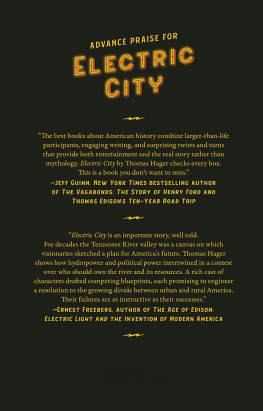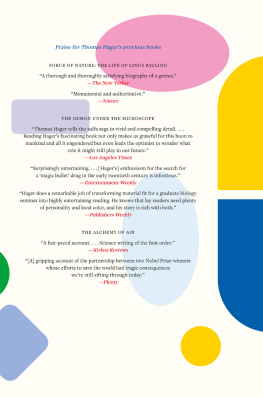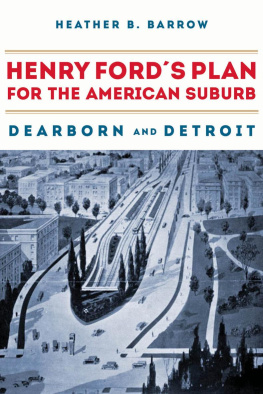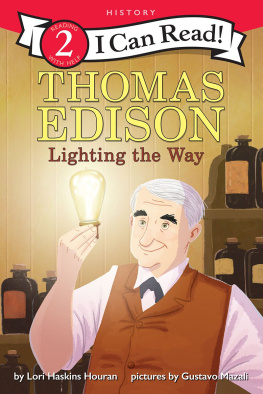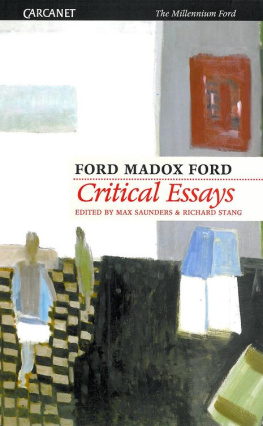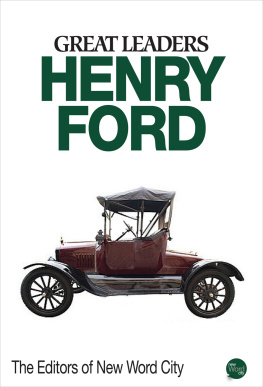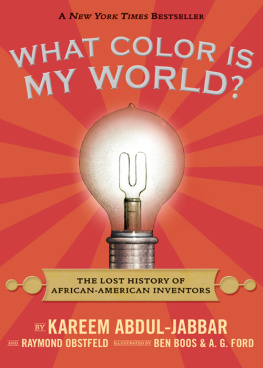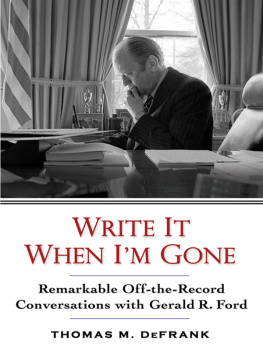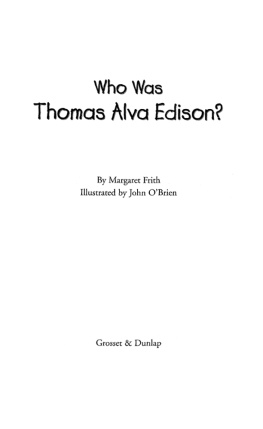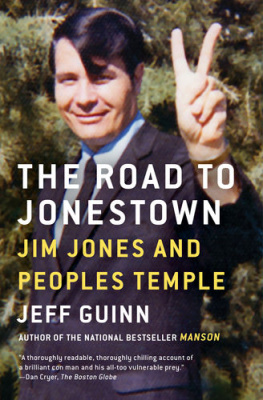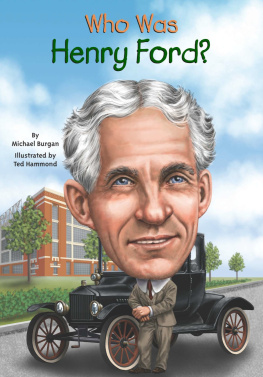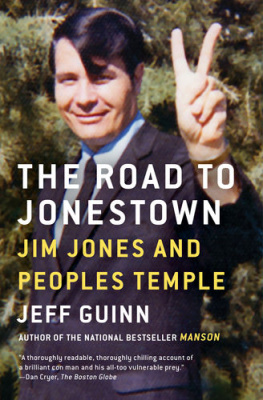Contents
Guide
Page List
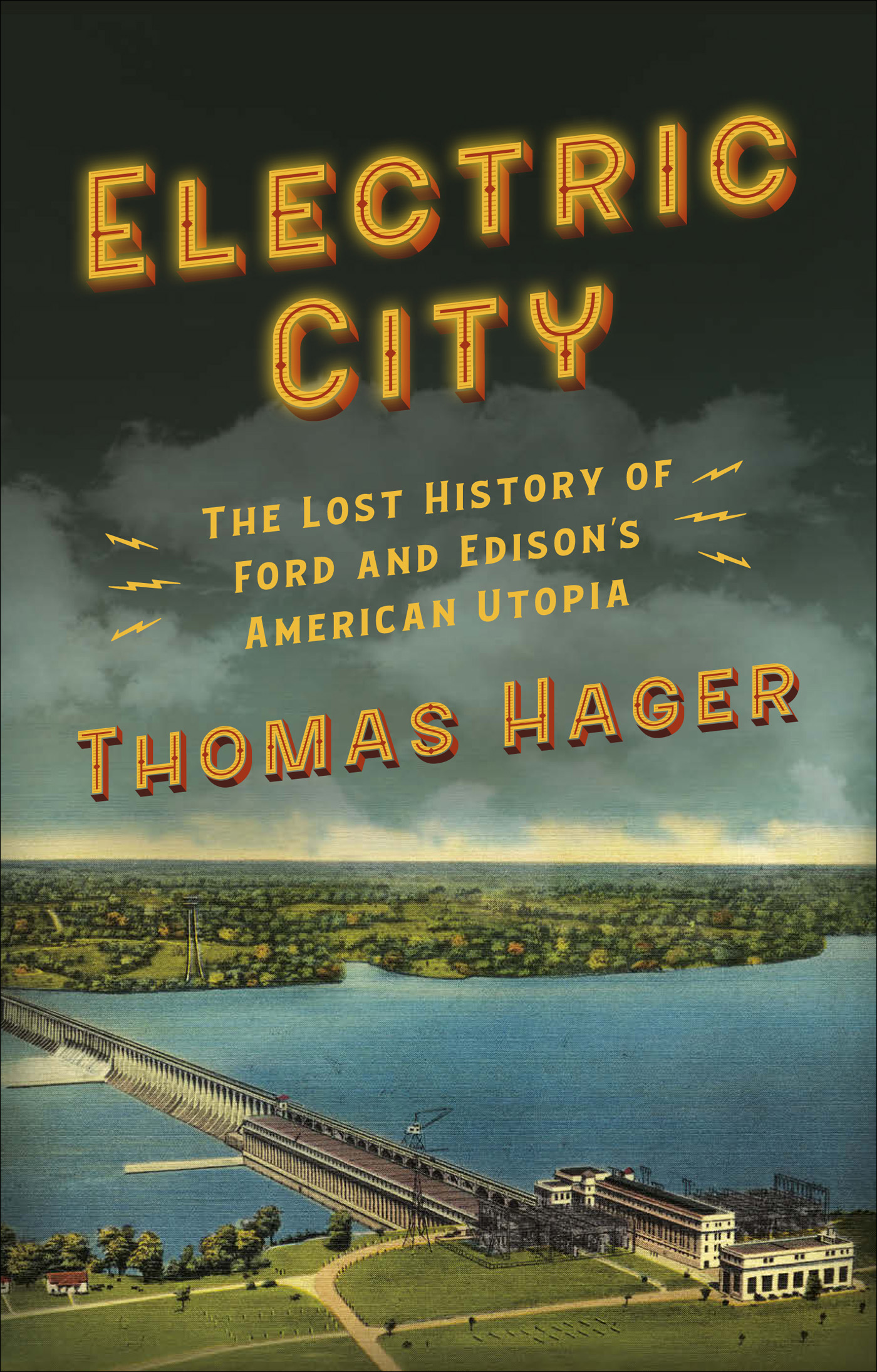
ALSO BY THOMAS HAGER
Ten Drugs: How Plants, Powders, and Pills Have Shaped the History of Medicine
The Alchemy of Air: A Jewish Genius, a Doomed Tycoon, and the Scientific Discovery That Fed the World but Fueled the Rise of Hitler
The Demon Under the Microscope: From Battlefield Hospitals to Nazi Labs, One Doctors Heroic Search for the Worlds First Miracle Drug
Force of Nature: The Life of Linus Pauling

Copyright 2021 Thomas Hager
Cover 2021 Abrams
Published in 2021 by Abrams Press, an imprint of ABRAMS. All rights reserved. No portion of this book may be reproduced, stored in a retrieval system, or transmitted in any form or by any means, mechanical, electronic, photocopying, recording, or otherwise, without written permission from the publisher.
Library of Congress Control Number: 2020944922
ISBN: 978-1-4197-4796-0
eISBN: 978-1-64700-044-8
Abrams books are available at special discounts when purchased in quantity for premiums and promotions as well as fundraising or educational use. Special editions can also be created to specification. For details, contact specialsales@abramsbooks.com or the address below.
Abrams Press is a registered trademark of Harry N. Abrams, Inc.

ABRAMS The Art of Books
195 Broadway, New York, NY 10007
abramsbooks.com
For the good friends who introduced me to the Shoals, Amit Roy and Taylor Pursell
CONTENTS
INTRODUCTION
In December 1921, the richest man in the world and the greatest inventor in the worldthe Twin Wizards, as the press called them, Henry Ford and Thomas Edisonopened the door of Fords private railcar, emerged onto a rear platform, and announced the future. They were on a side track at an old wooden station in what many Americans would have considered the approximate middle of nowhere: the small town of Florence, Alabama. They were surrounded by thousands of local people, the biggest crowd anyone had seen in the area for years, the areas merchant elite and government officials in their best suits and fedoras jostling shoulder to shoulder with sharecroppers and farm families. The throng murmured expectantly, and reporters from fourteen newspapers and wire services pulled out their notebooks. Ford, looking dapper and full of energy, beamed at the crowd. He was no public speakerhad a high voice and tended to get tongue-tied before any audience larger than a few peopleand he did little more than introduce his traveling companions. There were cheers when he introduced Thomas Edison to the crowd. There were cheers when he introduced his wife, Clara, and Edisons wife, Mina, and his son, Edsel, and Edsels wife, Eleanor. The crowd would have likely cheered if he had introduced his private chef, who had just finished making them a light lunch.

The Twin Wizards: Ford and Edison in Florence, Alabama, 1921
He didnt need to tell the crowd much more, because theyd been reading about his ideas for weeks in the newspapers. Right here in their town, in this region along the Tennessee River, Ford and Edison were going to create jobs, bring in money, and build a new city unlike anything on earth.
Ford had given additional details to reporters during the trip down from Detroit. He was planning to build a city ten times the size of Manhattan at a spot next door to Florence called Muscle Shoals. This city of the future was going to combine the technological power of a city with the wholesome natural beauty of the country, marrying the best parts of urban and rural life. It was going to be a city without slums or tenements or smoke-spewing factories, no soul-destroying urban rota green ribbon city of small centers stretching for seventy-five miles along the river tied together by fast, smooth highways. The whole thing was going to run on clean, renewable energy in the form of electricity generated by the river itself. He was going to build dozens of small factories. He was going to create jobs for a million workers.
All the workers would have the chance to live on a few acres of land, in touch with nature and farming, growing much of their own food. Using modern machinery, there was no reason they couldnt get the necessary farmwork done in two or three months, he told the reporters. The rest of the time, they would switch to blue-collar jobs in small, electrically powered factories, earning cash wages they could spend on cars, farm equipment, radios, labor-saving devices, and their kids educations.
And there was more. This new cityreporters were already calling it the Detroit of the Southwould be built and financed in a new way that would help break the stranglehold that bankers and Wall Street fat cats had over America, and return economic power to people who actually worked for a living. The way Ford and Edison described it, the whole thing would be paid for with a new kind of currency they called energy dollars. It wouldnt cost the American taxpayers a nickel. It was going to be an American utopia that would attract workers from all over the nation, stimulate the southern economy, and spur a new national prosperity. It would help feed the world. It would even, Ford said, help put an end to war.
Behind his brief speech was a deep drive to bring the benefits of new technology to one of the poorest, least-developed parts of the nation. The new city was going to be the summation of everything the Twin Wizards believed: Fords passion for machines and efficiency and Edisons single-minded dedication to improving lives through new technology. This would bring their careers to a resounding finale. The great electric city was going to be their masterpiece.
The crowd cheered wildly.
This is the story of the rise and fall of the great electric city, how it became one of the biggest news events of the Roaring Twenties, was the cause of 138 bills and a decade of attention in Congress, spurred an investment frenzy bigger than anything since the Klondike Gold Rush, changed the direction of urban planning around the world, and helped fuel a movement that came close to electing Henry Ford president of the United States.
It also tells how, after years of feverish effort, the whole thing came crashing down. One man, Senator George Norrisa name little known today but vitally important in American historywas responsible for opposing and derailing Fords plans, and this is his story, too. Finally, it describes what emerged from the ashes of Fords idea for an American utopia. The area around Florence, Alabama, is today green and prosperous, its economic status vastly improved, its way of life transformed. The book describes how that happened.
This is a story that highlights American optimism and innovation, a peculiarly American eagerness to try new things, create new systems, experiment with new ways of doing business, and adopt new ways of living. Along the way, it includes stories of some vivid and little-known historical charactersan array of dreamers, hucksters, politicians, and business titanswho wrestled for control over the future of a kingdom-size chunk of the American South. Their battles over the river were forerunners of many of the issues that consume us today: achieving the proper balance between ambition and altruism, industry and environment, modern life and traditional ways.

